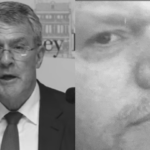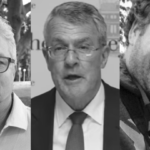Will Australia’s Chief Lawmaker Finally Introduce Effective Whistleblower Protections?

Commonwealth attorney general Mark Dreyfus traipsed back into office at the 2025 federal election, as he took two-thirds of the vote in the seat of Issacs, which is the electorate that he’s held since 2007. The big question many are now asking is, how is the chief lawmaker going to pull off a second term of promising to save public sector whistleblowers, whilst actually doing nothing of the sort?
Two key issues were on the agenda on reappointment of Dreyfus to the position of Australian attorney general in May 2022, after he’d previously held the office for eight months in 2013 under a Gillard-Rudd government, and these matters involved establishing a federal anticorruption watchdog and improving public service whistleblower protections, as his first attempt was failing.
In terms of the long-sought integrity commission, the National Anti-Corruption Commission (NACC) was rolled out on 1 July 2023, and when it came to the most prominent example of government wrongdoing of the day, the Robodebt scandal, the toothless watchdog initially rejected the inquiry, finding it “not in the public interest”, a decision later found to have been dubiously made.
The other reforming task the Australian public was hoping Labor’s top legal mind would finally put to bed was the lack of protections for public service whistleblowers, as his initial attempt during his first stint at AG, the Public Interest Disclosure Act 2013 (Cth), had not only been assessed as wanting, but a star-studded cast of whistleblowers were about to be prosecuted under its inadequate laws.
And in having distinctly promised the public that these long-term gripes would be resolved prior to the 2022 election, and with federal Labor’s most sterling legal mind returned to office, Dreyfus then set about conducting a 36-month-long legislating pantomime, which involved rolling out the NACC and a round of PID Act reforms, which ultimately, ensured the status quo remained.
Detering public interest disclosers
The Public Interest Disclosure Act 2013 passed parliament in mid-June that year. The legislation’s explanatory memorandum detailed the chief aim of the bill was to establish a “framework to encourage and facilitate reporting of wrongdoing by public officials in the Commonwealth public sector”, meaning the government wanted its employees to expose public service corruption.
The statutorily required review of the PID Act, then resulted in the release of the 2016 Moss report, which made 33 recommendations for improvements. Successive Coalition governments, however, then made no effort to improve the PID legislation. Indeed, the Liberal Nationals didn’t respond to the review itself until December 2020, which was followed by no other legislative action.
But what the Coalition did do, under the vision of then attorney general Christian Porter, was to action a public service sector whistleblowing hitlist over 2018/19, which entailed launching a long-avoided prosecution against former ASIS agent Witness K, his ACT barrister Bernard Collaery, ADF military lawyer David McBride and Australian Taxation Office former employee Richard Boyle.
The alleged crimes of these four men comprised the exposure of classified information to the public, in order to reveal government wrongdoing, which is exactly what the explanatory memorandum that Dreyfus provided with the introduction of his public interest disclosure legislation encouraged public sector workers to do.
But Dreyfus was onto it, as against a burgeoning backdrop of public outrage developing around the high-profile whistleblower cases, the then Labor shadow AG told The Canberra Times in late 2021 that he’d always understood the PID Act would need reforming, that it had been difficult to watch the Coalition leave the needed reforms unactioned, and that he, on return, would right this wrong.
A case in point
The campaign calling for the dropping of the whistleblower/political prosecutions was relieved by Dreyfus’ return to attorney general based on his promises around PID reform.
By the time Dreyfus had been appointed AG in 2022, however, Witness K had thrown in the towel a year prior and pleaded guilty. So, the returned chief lawmaker then set about dropping the prosecution against Collaery in July 2022, in an obvious move to shore up his reformist credentials.
As for reforming the PID Act, Dreyfus introduced a first round of amendments in November 2022, which were designed to facilitate the running of the soon-to-be established NACC. The federal Labor AG further assured that with the passage of this bill, the government was about to embark upon a “second stage of reform” that would include initial “public consultation”.
The timing of the first round of PID changes, the NACC reforms, appeared a tad strange, however, as the month prior to introduction, both whistleblowers David McBride and Richard Boyle appeared at court to argue their public interest defence under the pre-reformed Act, and while the government blocked McBride’s attempt to defend himself, the outcome of Boyle’s case was even more peculiar.
Boyle exposed the ATO misapplying a garnishee technique to improve end of financial year figures, and when he did argue his public interest disclosure defence, the SA Supreme Court confirmed that whilst Richard had been protected by the criminal immunity in section 10 of the PID Act in terms of his speaking to the press, this didn’t cover the preparatory acts he took in compiling his case.
So, Boyle is set to stand trial on 3 November this year, over 19 criminal offences relating to the collecting of classified taxpayer information, but in the end, exposing it to no one.
As for the second round of PID amendments, the major overhaul of the Act, one might have expected Dreyfus to have progressed them over the last parliament, especially due to the fact that within a November 2023 consultation paper, the government raises the prospect of extending the section 10 PID Act criminal immunity to preparatory acts when compiling a public interest disclosure.
In putting that another way, Dreyfus is sitting on legislation that he jeopardised ever passing by failing to progress it during the last term of parliament, yet this comprehensive reform bill could contain laws that would result in the so-called “crimes of Richard Boyle” actually becoming completely legal and ultimately, government-encouraged acts.
Ensuring the public sector keeps mum
“In 2022, I returned to government and to the office of attorney general with an ambitious reform agenda,” Dreyfus told the November 2024 Law Council of Australia Gala Dinner. “In two and a half years, much has been achieved – but there is much more to do.”
Yet, distinctly missing from the Australian attorney general’s speech last summer was any mention of his once favoured whistleblower reform agenda.
Meanwhile David McBride, the other key whistleblower, is currently stewing away in the ACT’s Alexander Maconochie correctional facility, serving a 5 year and 8 month sentence, with parole not available prior to 2 years and 3 months served. And the lawyer is now awaiting the outcome of his March 2025 appeal of his sentence that punishes him for exposing Australian war crimes.
The truth of the matter though is that Dreyfus could have dropped the case against McBride pre-trial and could still do the same in Boyle’s case, by invoking the same power, under section 71 of the Judiciary Act 1903 (Cth), which is what he used to discontinue Collaery’s prosecution, as it applies to any defendant charged with “an indictable offence against the laws of the Commonwealth”.
On being quizzed over why he’d released Collaery under this power and not McBride and Boyle, Dreyfus told the Alliance Against Political Prosecutions that he can only exercise this power under “very unusual and exceptional circumstances”. Although the advocacy group certainly considered that such extraordinary conditions were then present in the McBride and Boyle cases.
Another clear difference between Collaery’s case and that of Boyle and McBride is that the former was not a government employee speaking out against his employer and subjecting the federal government to a loss of face.
So, it would appear that the subsequent punishment of former public service officers that do speak out about government wrongdoing serves as warning to other potential “do-gooders”, and under these sets of circumstances, one cannot expect real whistleblower reforms to be progressed by either major party, which increasingly is being referred to as the governing duopoly.
A group of Australian integrity experts took out advertisements in local papers this week, calling on the 48th parliament to establish a Whistleblower Protection Authority, and legislation to progress such reform was already introduced into federal parliament in February this year, by a group of progressive crossbenchers.
Led by Independent member for Clark Andrew Wilkie, the independent crossbenchers have tabled the Whistleblower Protection Authority Bill 2025, which would be a body that serves to facilitate disclosures around government malpractice and to provide advice, guidance and support to public service employees trying to do the right thing.
Of course, this would be a rather bold sea change, compared to the duopoly’s current policy of throwing away the key when it comes to public sector employees who have the gall to speak out against government corruption.







